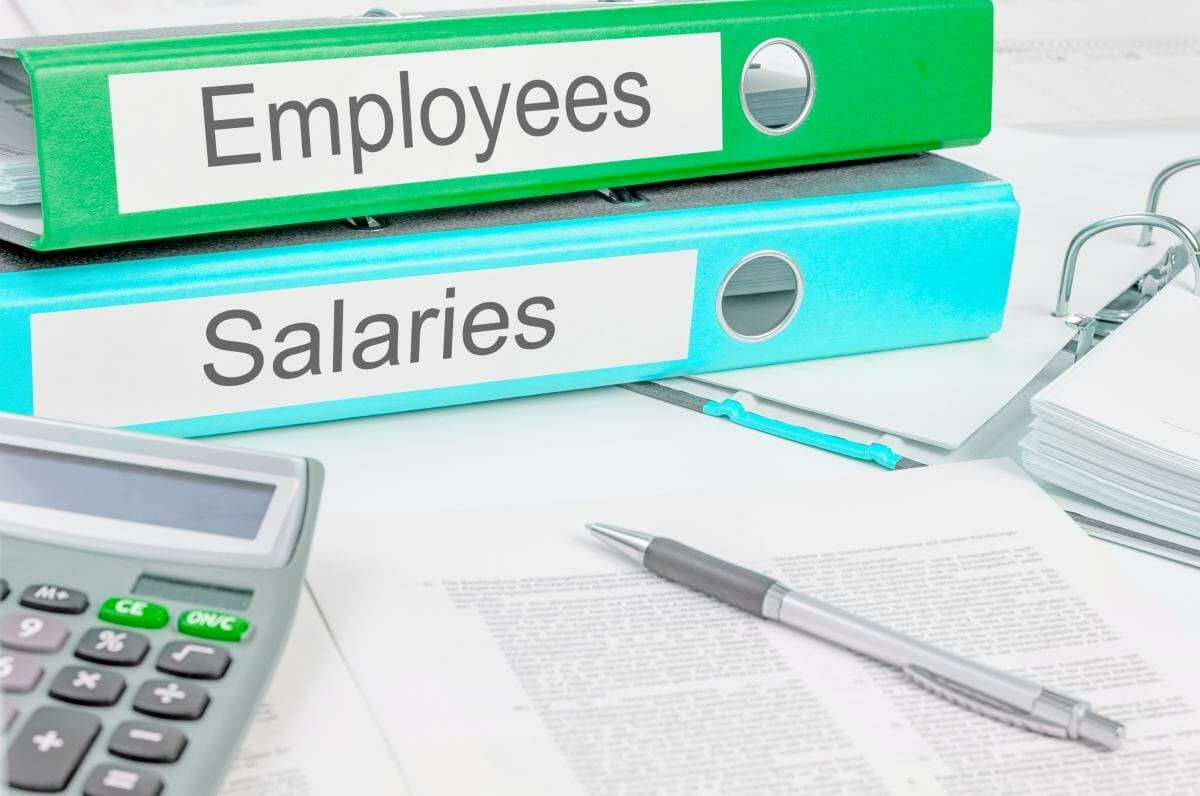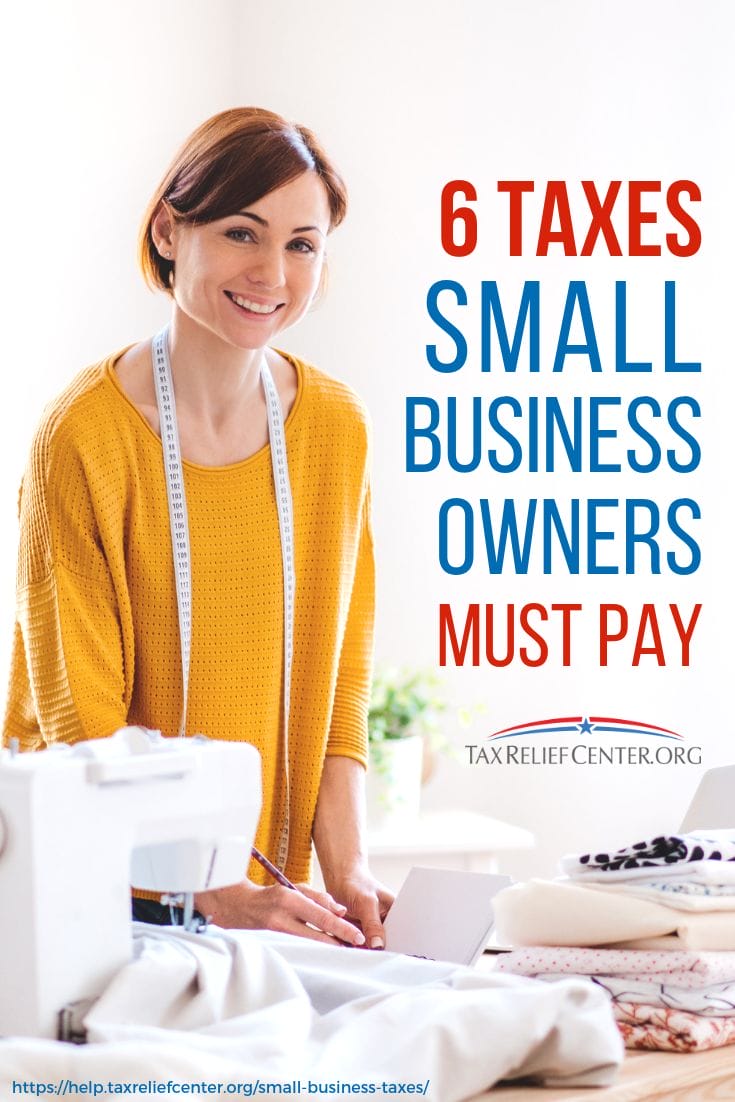Small business taxes can make or break finances for taxpayers, and knowing more about this type of business taxes can help taxpayers prepare and budget accordingly.
RELATED: Business Vs Hobby: How The IRS Qualifies Hobby Income As A Business
In this article:
- Local Business Tax, Specifically Sales Tax
- Income Taxes for Small Business Taxpayers
- Dividend Tax for Shareholders
- Excise Taxes
- Business Taxes on Property
- Payroll Taxes
6 Small Business Taxes Entrepreneurial Taxpayers Should Prepare For
1. Local Business Tax, Specifically Sales Tax
The Federal Government does not directly receive any revenue from sales. The IRS indirectly takes a portion through income taxes, but does not concern itself about sales taxes.
However, each locality has its own ruling regarding state taxes. Familiarizing yourself with the computation of state taxes, especially state sale tax calculators, can save small businesses a lot of trouble.
States require businesses to remit the sales taxes to the appropriate state department of revenue, which means different tax forms both for state and IRS reporting.
Do note that not all states have sales taxes, but all states can ask the court to garnish wages. Small business owners may want to know what assets the IRS cannot seize, as the state and the IRS have similar prohibitions for levying assets under the law.
Each state has its own tax rates and item classification for sales taxes, which means taxpayers should try to get more localized information from their state department of revenue.
Some states do not have sales taxes, like Montana, Alaska, Oregon, New Hampshire, and Delaware.
Currently, California has the highest base sales tax at 7.25%. Most of the time sales taxes are actually paid by the customer from the retail store, with the retailer remitting said taxes to the state.
Important note: For small businesses with an online presence, the South Dakota V Wayfair case has empowered states to make rules and regulations about online sales, and made it necessary for small business owners to check with their state regarding how sales are taxed and reported.
2. Income Taxes for Small Business Taxpayers

The ownership status of small businesses affects income taxes greatly, specifically how taxpayers report and pay taxes.
Calculating income taxes properly deserves its own in-depth discussion, since a single mistake in any number affects the whole tax return.
The reporting of small business taxes regarding the income of a business relies on whether or not taxes pass through the corporation directly to the individual, or proportionate taxes go to all taxpayers, which necessitates two reports: one for the business and another for the taxpayer.
Individual owners, sole proprietors, and a Limited Liability Corporation with only one member should file a Schedule C form together with the taxpayer’s individual tax return. Taxpayers will notice that the business does not need to send a report, but all income, expenses and taxes should appear in the individual tax reporting.
On the other hand, corporations with at least two members, like partnerships or corporations, must report their taxes to the IRS. However, the payment of taxes should come from the shareholders, which means that the amount each shareholder remits as taxes to the IRS is proportional to the income they received.
However, for corporations who give out dividends, there is another tax that must be discussed.
3. Dividend Tax for Shareholders
Sometimes, taxpayers may feel they end up paying double the taxes, and one example is dividend taxes for businesses. You see, the dividends have a special tax rate, both as corporate income and as personal income.
Since the IRS considers this as profit and not as expenses or income, the corporation pays corporate income tax when the dividend distribution takes place.
When the taxpayer receives the said dividend, personal tax rates apply.
Because of the nature of dividend income, business owners may want to check with a tax professional to minimize any unnecessary expenses from costly errors. Dividend taxes usually have a quarterly schedule.
RELATED: How To Deal With The IRS And Your Small Business Tax Debts
4. Excise Taxes

When taxpayers hear of excise taxes, they usually think of sin taxes imposed on tobacco, wine, some sweets, and even for recreational marijuana.
However, excise taxes go above these items and cover things like gasoline, oil, firearms, telephone services, air travel, and other goods and services.
Usually, a government levies excise taxes to control the use of some services and products for the good of the community.
Small businesses operating and selling such items or services pay the IRS excise taxes. In fact, some states also have additional excise taxes on top of those levied federally, like excise taxes for recreational marijuana for states that allow operations within.
Small business taxes use From 720, which is a quarterly federal tax process. A quick glance of the form will show important categories.
The IRS levies a federal excise tax if the small business deals with the sale or operation of the following industries:
- Environmental taxes, for oil and petroleum,
- Communication taxes, like local telephone services,
- Air transportation taxes,
- Fuel taxes,
- Coal,
- Ship passenger vehicles or water transportation,
- “Retail” tax, which focuses on the sale of trucks, trailers tractors, and other big vehicles.
To clarify, both the state and the IRS can levy excise taxes, and the items listed above relates only to the federal tax reporting.
5. Business Taxes on Property
The IRS does not directly levy a tax on business property. However, the state where the property operates in may apply a tax rate on the building and real estate.
The taxpayer pays a business property tax to the local taxing authority, with the assessed value of the property used as the taxable amount applied to the tax rate of the specific locality.
However, if the small business deals with the sale of real estate, like a real estate brokerage, then the IRS indirectly taxes the business in the form of income tax. Selling real estate also have other taxes applicable, like capital gains, with which taxpayers may need to get help from a tax professional.
To clarify, the IRS does not have any power to levy a property tax. Instead, the local government unit performs the collection of these taxes for the state.
6. Payroll Taxes

A very important tax that some small businesses may overlook, payroll taxes refer to Social Security contributions and Medicare.
Generally speaking, the employer should withhold around 15.3% of the employee’s pay as part of payroll taxes, 6.2% for Social Security, and 1.45% for Medicare for each contributor (there are two contributors: the employer and employee).
The small business should withhold half from the employee, while the other half comes from the pockets of the business.
Non-payment of payroll taxes can lead to the Trust Fund Recovery Penalty, which essentially doubles what the taxpayer should pay. This massive penalty can affect the finances of any business, which makes this tax important for all business owners.
In a nutshell, small business taxes consist of taxes for sales, income, dividends, excise goods and services, business property, and payroll. The IRS can close down a business due to tax debt, which is why it is extremely important for taxpayers to know more about — and properly remit — small business taxes.
How do you report your small business taxes? Do you have any questions about how the IRS proceeds with an appeal or dispute for taxes? Share your insights below!
If you owe back taxes, visit taxreliefcenter.org for more information on tax relief options.
Up Next:
- IRS Tax Debt Relief | 9 Ways To Settle Your Tax Debts
- Simple And Practical Frugal Living Tips You Can Start Doing Today
- Filing Tax Extension | A Complete Guide [INFOGRAPHIC]


